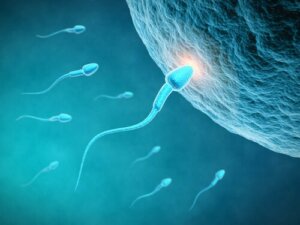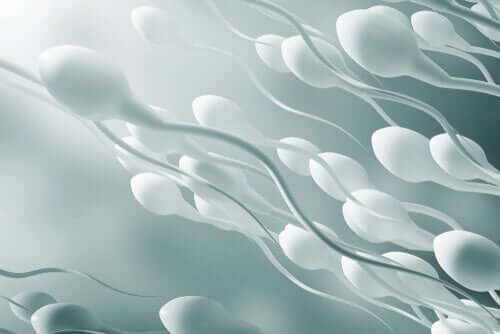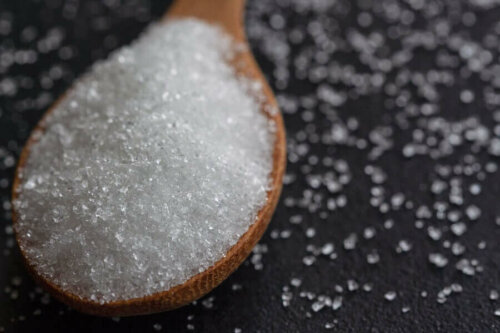How a Man's Diet Impacts His Quality of Sperm


Written and verified by the nutritionist Saúl Sánchez Arias
Fertility is directly related to diet and lifestyle. The consumption of toxins, alcohol, and an inadequate diet can all influence the quality of a man’s sperm, and therefore, his reproductive success.
To avoid this situation men should maintain healthy eating guidelines, emphasizing the consumption of fish and vegetables. At the same time, they must reduce the intake of ultra-processed food and increase physical activity.
Alcohol lowers the quality of sperm
This substance has a negative impact on the body. It increases the risk of developing complex diseases in the medium and long term in addition to inducing a temporary cognitive deterioration.
Thus, drinking alcohol on a regular basis worsens your state of health. Additionally, according to research published in the Reproductive Biomedicine Online journal, regular alcohol intake decreases the sperm count.
You must take into account that a minimum number of sperm must reach the female reproductive system for fertilization to occur. If the sperm is low then there’s also a lower amount of cells available from fertilization. Thus, the odds of reproductive success decrease.

Read also What Does a Vasectomy Involve?
Micronutrients affect sperm motility
A deficit in the contribution of micronutrients leads to the appearance of pathologies in the medium or long term. A typical example is an anemia caused by a lack of iron, and sperm deteriorates without an adequate intake of these nutrients.
Specifically, the quality, the volume of the semen, and the mobility of the spermatozoa it contains are directly linked to the dietary intake of zinc. Having low levels of this micronutrient affects sperm production and its quality, and can trigger an infertility problem. At least according to research published in the International Journal of Reproductive Biomedicine.
Sugar jeopardizes the quality of semen
Simple and added sugar are common in modern diets. This substance can increase the risk of developing metabolic diseases. Similarly, it promotes obesity, especially when consumed by people with a sedentary lifestyle.
In addition, the consumption of simple sugars is related to a reduction in sperm count and quality. This situation conditions reproductive success and can lead to temporary infertility.
Fortunately, improving dietary habits in terms of reducing the consumption of simple sugars can restore the normal sperm count. However, a poor diet doesn’t only lead to a lower percentage of success when conceiving. In fact, newer research associates poor parental nutrition with poorer offspring health.

You may also be interested in How to Interpret the Results of a Spermogram
Take care of your diet to improve the quality of your sperm
Lifestyle habits impact both the volume and the quality of the sperm. Thus, diet and regular physical activity can greatly influence the chances of conceiving.
This is because some types of food and toxic substances can reduce the sperm count and their mobility, making the fertilization process difficult. This is the case of alcohol and simple sugars.
Similarly, micronutrient deficiencies are associated with lower motility and sperm quality in semen. Zinc is the most representative of them all. In fact, some infertility processes are associated with low levels of this substance, so supplementation could be an effective solution.
Finally, keep in mind that a well-balanced diet rich in vegetables and fish, especially when you’re trying to conceive a child, is the foundation of this process. It’s the best way to improve your chances of success. At the same time, you’ll positively condition the health of your descendants. This is because the parents’ diet has an effect on the risk of illness in their offspring.
All cited sources were thoroughly reviewed by our team to ensure their quality, reliability, currency, and validity. The bibliography of this article was considered reliable and of academic or scientific accuracy.
- Ahmadi S., Bashiri R., Ghadiri Anari A., Nadjarzadeh A., Antioxidant supplements and semen parameters: an evidence based review. Int J Reprod Biomed, 2016. 14 (12): 729-736.
- Ricci E., Beitawi S., Cipriani S., Candiani M., et al., Semen quality and alcohol intake: a systematic review and meta analysis. Reprod Biomed Online, 2017. 34 (1): 38-47.
- Gutiérrez, Alejandra María Gómez, Briana D. Gómez Ramírez, and Walter D. Cardona Maya. “¿ Tienen los Hábitos de Vida y de Alimentación Impacto en la Calidad Seminal?.” Revista Urología Colombiana/Colombian Urology Journal (2020).
- Dupont, Charlotte, and Rachel Lévy. “Nutrition, environment and male fertility.” Médecine de la Reproduction 20.3 (2018): 206-214.
- Alves, Marco G., Branca M. Silva, and Pedro F. Oliveira. “Nutritional Factors and Male Reproduction.” Encyclopedia of Reproduction (2018): 458.
This text is provided for informational purposes only and does not replace consultation with a professional. If in doubt, consult your specialist.








